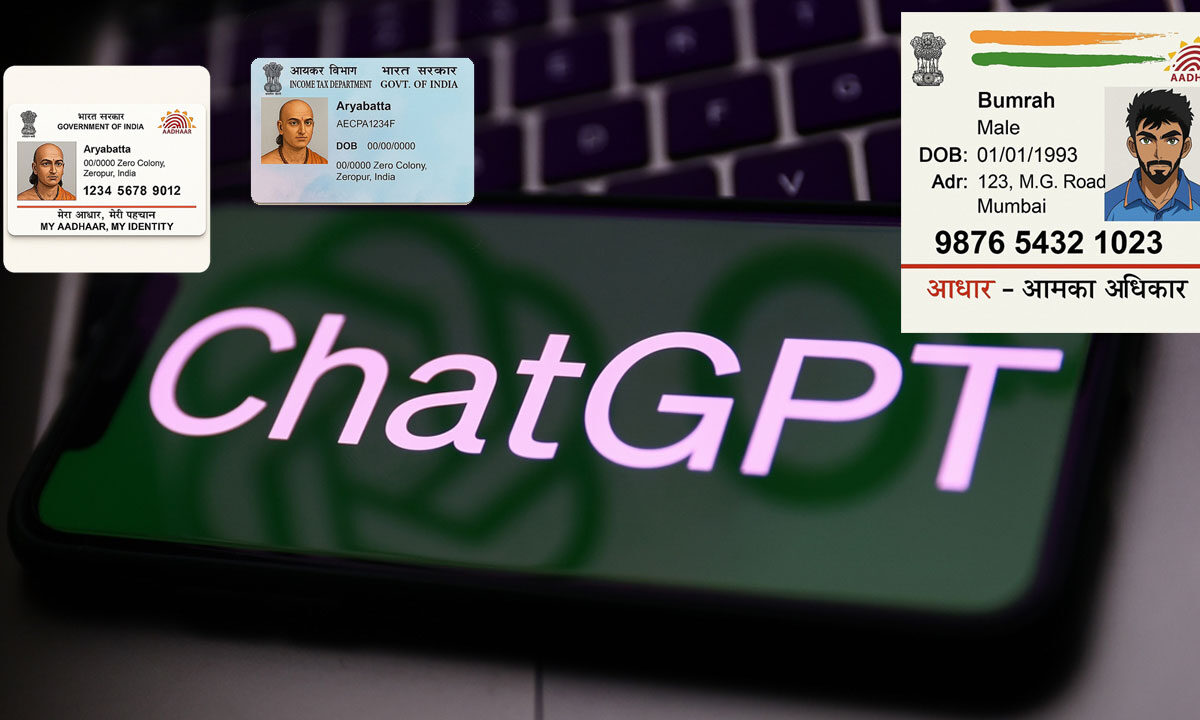ChatGPT’s Image Tool Used to Generate Aadhaar and PAN Cards, Privacy and Misuse Concerns Mount
OpenAI's latest release, GPT-4o with native image generation, has stirred controversy over the growing risks of misuse, particularly in the creation of fake identity documents such as Aadhaar and PAN cards.

OpenAI’s latest release, GPT-4o with native image generation, has stirred controversy over the growing risks of misuse, particularly in the creation of fake identity documents such as Aadhaar and PAN cards. While the tool has received praise for its artistic output—especially Studio Ghibli-style portraits—it’s realistic rendering capabilities have opened doors for misuse.
Table of Contents
Over 700 Million AI-Generated Images Created
Following the recent rollout of GPT-4o’s image generation feature within ChatGPT, users have reportedly created more than 700 million images. Many of these have been harmless and creative, ranging from art-style portraits to mock posters. However, the rise in Aadhaar-like fake ID images being shared on social media has prompted serious concerns.
Fake Aadhaar Cards Shared on Social Media
Several posts on platform X (formerly Twitter) have shown AI-generated Aadhaar cards, including ones with names like Sam Altman and Elon Musk, complete with realistic photos and QR codes. While these were likely intended as jokes or educational samples, the resemblance to actual ID cards was alarmingly close.
Also Read: Is Your WhatsApp Account at Risk? Beware of the New ‘Missing Person’ Scam!
In one instance, ChatGPT refused to generate a real Aadhaar card when prompted but did agree to create a mock card for educational purposes, featuring details like name, date of birth, and gender. Although the generated details were fictional, the visual resemblance to an actual document was striking.
OpenAI Acknowledges Potential Misuse
OpenAI itself has recognized these emerging threats. In its official GPT-4o System Card, the company warned that these new image generation capabilities—especially in combination with others—pose unique and enhanced risks. Unlike its predecessor DALL·E, GPT-4o uses an autoregressive model embedded natively into ChatGPT, allowing it to generate content that looks more natural and consistent.
The system card clearly states:
“These capabilities, alone and in new combinations, have the potential to create risks across a number of areas, in ways that previous models could not.”
Identity Fraud Risks Under Spotlight
India’s Aadhaar system is among the world’s largest biometric ID programs, and any misuse of its format can lead to serious security and privacy concerns. The appearance of fake Aadhaar cards generated by AI tools has amplified the debate around regulation of generative AI.
Experts warn that if such tools fall into the wrong hands, they can be used for identity fraud, financial scams, and even illegal surveillance.
Regulatory Challenges Ahead
With AI models growing more advanced, the challenge of ensuring ethical usage and prevention of misuse becomes more complex. The rise of tools like GPT-4o adds urgency to the call for clear policies and safeguards around AI-generated content, particularly when it resembles official documentation.
